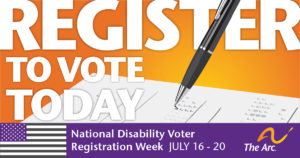People living with mental health disabilities and/or intellectual and developmental disabilities (I/DD) are disproportionately represented in contacts with law enforcement and other first responders, as well as in every part of the criminal justice system, including jails and prisons. While people with I/DD comprise 2 to 3 percent of the general population, they represent 4 to 10 percent of the prison population.
Interactions with law enforcement can be extremely harmful to community members with disabilities. These interactions are also challenging for responding officers, who do not always have the tools or resources to understand disability. Conservative estimates show that at least 10 percent of calls to police involve people who have mental health disabilities and that 50 to 80 percent of police encounters involve persons with some type of disability. In response to this critical need, the Vera Institute of Justice—in cooperation with the Bureau of Justice Assistance (BJA) and in partnership with a consortium of organizations, including The Arc—is launching Serving Safely: The National Initiative to Enhance Policing for Persons with Mental Illnesses and Developmental Disabilities. This new initiative is designed to promote collaborative responses for people with mental health disabilities and I/DD who come into contact with the police to improve outcomes and the safety of all parties.
Through Serving Safely, The Arc, Vera, BJA, and other partners will work together to minimize unnecessary detention and incarceration of persons with mental health and developmental disabilities, strengthen connections to community-based supports and services, and grow meaningful partnerships between law enforcement agencies and the communities they serve.
The Arc has a long history of work in the criminal justice field and is thrilled to be partnering with Vera on this project. In 2013, The Arc created the National Center on Criminal Justice and Disability® (NCCJD®). This is the first national center of its kind serving as a bridge between the I/DD community and criminal justice community that focuses on both victim and suspect/defendant/incarcerated person issues. The Center provides training and technical assistance; resources for professionals, people with disabilities, and their supporters; and educates the public about the intersection of criminal justice reform and the advancement of disability rights. Pathways to Justice®, NCCJD’s signature training curriculum, is a comprehensive, community-based training program that helps criminal justice professionals—including law enforcement—understand disability, disability culture, and professionals’ legal obligations toward the disability community.
NCCJD is building the capacity of the criminal justice system to respond appropriately to gaps in existing services for people with disabilities, focusing on people with I/DD, who often remain a hidden population within the criminal justice system, with little or no access to advocacy supports or services. Vera will be partnering directly with the experts and staff that run NCCJD on Serving Safely.
Other key partners on the project include:
- American College of Emergency Physicians
- CIT International
- National Alliance on Mental Illness
- National Disability Rights Network
- Prosecutors’ Center for Excellence
- Dr. Amy Watson, University of Illinois, Chicago
- Dr. Michael Compton
Serving Safely has already started to accept requests from law enforcement agencies for training and technical assistance at www.vera.org/projects/serving-safely/training-and-technical-assistance. If you are interested in learning more about The Arc’s role in the Serving Safely initiative, please email NCCJDinfo@thearc.org.
About The Arc
The Arc advocates for and serves people with intellectual and developmental disabilities (I/DD), including Down syndrome, autism, Fetal Alcohol Spectrum Disorders, and cerebral palsy. The Arc has a network of nearly 650 chapters across the country promoting and protecting the human rights of people with I/DD and actively supporting their full inclusion and participation in the community throughout their lifetimes.
About the Vera Institute of Justice
The Vera Institute of Justice is an independent nonprofit national research and policy organization working with governments to build and improve justice systems that ensure fairness, promote safety, and strengthen communities. For more information about Serving Safely and the Vera Institute of Justice, see www.vera.org/projects/serving-safely.










